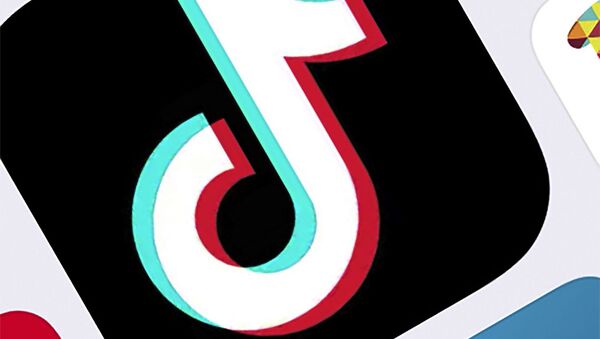On 13 September, Oracle struck a deal with TikTok's parent company ByteDance to become its "trusted technology partner" in the US. The agreement, which will be reviewed by the US Committee on Foreign Investment (CFIUS) this week, also envisages creating an American-headquartered company with 25,000 new jobs.
Citing security concerns, Donald Trump had previously threatened to ban the popular app altogether unless TikTok's operations in the US are transferred to an American company. The deadline set by the president for solving the issue was due to expire on 15 September.
INBOX: @realDonaldTrump has signed an executive order to ban TikTok in 45 days. pic.twitter.com/1zR4HgCPVj
— Andrew Feinberg (@AndrewFeinberg) August 7, 2020
While the details of the aforementioned deal remain shrouded in secrecy, Oracle is not referring to it as a sale or acquisition. Microsoft's earlier bid to buy TikTok was turned down by ByteDance.
Mnuchin on CNBC confirms Oracle has made a proposal to be Tik Tok's "trusted technology partner" to create a US headquartered company with 25,000 new jobs. CFIUS will review the proposal this week and make a recommendation to Trump.
— Alan Rappeport (@arappeport) September 14, 2020
'Oracle Will be Eyes and Ears of the US Government'
The Oracle-ByteDance pact is about a partnership to oversee data, not a sale, which is what Microsoft was after, explains Daniel Ives, managing director of equity research at Wedbush Securities, New York.
Microsoft has never wanted a partnership with the Chinese firm, according to the businessman; instead the American IT giant wanted to acquire TikTok and its cutting-edge algorithms. However, China Global Television Network (CGTN) reported that in late August the Chinese government had released a new list of technologies that are subject to export bans, which "appeared to suggest that the technology used in TikTok’s algorithm could not be exported without government permission".
"Oracle will be a technology partner for TikTok and be the eyes and ears for the US government around national security issues," Ives suggests.
The White House's focus on TikTok indicates that the US government "aims at controlling the operations of the foreign companies by forcing strict policies and rules on how they manage the data and information of American users," elaborates Pierluigi Paganini, a cyber-security analyst.
"Oracle will represent the US government in the monitoring of the operations of the Chinese firm," he notes. "From the end-user functional perspective, nothing will change, at least if the technical partner will be Oracle. The operation aims at preventing the data of American users from being gathered or abused by the Chinese government."
Previously, the short-video sharing app resolutely denied allegations of collecting user data illegally.
The ongoing fuss over the popular Chinese application is "nothing but Washington attempting to preserve the monopoly of US social media giants," presumes Caleb Maupin, a US journalist and political analyst.
"Social media is dominated by US-based entities, and there is a big fear of the inevitable shift toward multi-polarity", the political analyst underscores. "TikTok represents the fear that social media will slip out of Wall Street and London’s control."
TikTok is not the only China-based platform which has been targeted by the US government. In parallel with his TikTok ban, Donald Trump has also cracked down on WeChat, a Chinese multi-purpose messaging, social media and mobile payment app developed by Tencent, citing similar national security concerns.
Besides this, the US president kicked off nothing short of a crusade against Chinese telecom giants. In late June 2020, the US Federal Communications Commission formally designated the Chinese companies Huawei and ZTE as "national security risks to America’s communications networks" claiming that both "have close ties to the Chinese Communist Party and China’s military apparatus". The Chinese telecom firms have repeatedly denied "spying" on behalf of the country's government or the military.
Dust is Far From Settled in Oracle-ByteDance Deal
A number of US cyber experts and media sources have already shared their doubts about the Oracle-ByteDance accord, while Donald Trump, who started the ball rolling in late July, has yet to have a final say on the deal later this week.
Thus, The Verge observes that although Oracle's trusted partner status could "include some code audits" there are no guarantees that it would be able to stop ByteDance from "smuggling in some tracking malware if it wants to".
For his part, former Facebook security chief Alex Stamos argued on Twitter that "a deal where Oracle takes over hosting without source code and significant operational changes would not address any of the legitimate concerns about TikTok." If the White House accepts such a deal that "would demonstrate that this exercise was pure grift", Statmos highlighted, in a reference to Trump's 6 August executive order banning the app.
It is unlikely that the much-discussed deal concerning TikTok will quickly settle matters in the US, the observers believe.
"TikTok made huge efforts to conform to the wishes of the US foreign policy apparatus, but it made no difference," Caleb Maupin recollects.
For his part, Daniel Ives foresees even "more scrutiny of the platform and content could be on the horizon, given this heightened situation around TikTok between Beijing and DC."




